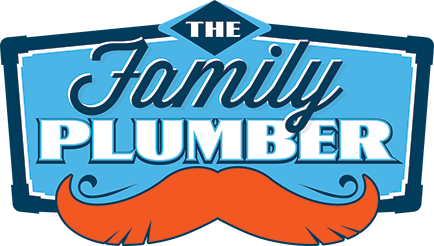Water quality is a crucial aspect for both residential and commercial properties. In regions with hard water, households and businesses often encounter challenges arising from mineral deposits and scale buildup. To address these issues and enhance water quality, many residents and businesses in Surprise, Arizona are opting for water softener installation. This effective solution not only improves water quality but also complements a range of plumbing services provided by “The Family Plumber,” such as plumbing repairs, sewer maintenance, leak detection, drain cleaning, water heater repair & installation, toilet repair & installation, and more. In this article, we’ll explore the benefits of water softeners, the process of installation, and how softened water integrates into your plumbing system.
Understanding Hard Water and Its Impact
Hard water, characterized by high levels of minerals like calcium and magnesium, can lead to scale buildup in plumbing systems and appliances. The effects of hard water include reduced water flow, clogged pipes, and decreased efficiency of water-using appliances. For properties in Surprise, Arizona, where hard water is common, it’s essential to consider the impact on daily activities and the operation of critical systems like sewers and drains.
The Benefits of Water Softener Installation
- Water softeners help eliminate minerals responsible for water hardness, preventing scale buildup and related issues. This improves the efficiency and longevity of plumbing systems and appliances, saving you money on plumbing repairs and water heater maintenance costs.
- Softened water is gentler on skin and hair, leaving you with a more refreshing and comfortable shower experience in bathtubs and showers.
- With the reduction of scale in pipes and appliances, water flow is enhanced, and you can enjoy improved performance from sinks, toilets, and faucets.
- Softened water can also extend the life of your garbage disposal, reducing the need for garbage disposal installation or repairs.
- In combination with water treatment & purification systems, water softeners create a comprehensive solution to ensure clean, safe, and pleasant-tasting water throughout your home or business.
Can You Install Your Own Water Softener System?
While some homeowners may be tempted to install a water softener themselves, it’s essential to approach this task with caution. Water softener installation involves plumbing and electrical work, and any mistakes could result in costly damages and voided warranties. Therefore, it’s advisable to enlist the services of professional plumbers, such as “The Family Plumber,” who offer expert water softener installation and have the expertise to handle other plumbing services.
What Do You Need to Know Before Installing a Water Softener?
Before installing a water softener, consider these important factors:
- Water Hardness Levels: Conduct a water hardness test to determine the severity of the issue and the appropriate capacity of the water softener needed.
- Water Usage: Assess the average daily water usage in your household or business to choose a water softener with the right capacity.
- Available Space: Determine the location for installing the water softener and ensure it has adequate space and proper ventilation. Consider how it integrates with other plumbing fixtures and the sewer system.
- Drainage: Water softeners require a drain line for the regeneration process, so ensure a suitable drain location is available, and sewer maintenance is up to date.
- Electrical Outlet: Check if there is an accessible electrical outlet near the installation area for the water softener and other plumbing appliances.
Where Is the Best Place to Put a Water Softener in Your House?
The ideal location for a water softener depends on several factors:
- Main Water Supply Entry: For whole-house water softening, install the water softener near the main water supply entry point to treat all incoming water, benefiting the entire plumbing system.
- Accessibility: Choose a location that allows easy access for maintenance and adding salt or potassium chloride to the softener.
- Drainage: Ensure the chosen location has a nearby drain to dispose of wastewater during the regeneration process, connecting it to your existing sewer system.
- Protection from Freezing: In colder climates, place the water softener in a heated or insulated area to prevent freezing, and take necessary measures for sewer maintenance in cold weather.
Does a Water Softener Run Through the Whole House?
Yes, a water softener is typically installed at the point of entry of the main water supply, ensuring it treats all the water entering the house. This means that softened water will be distributed throughout the entire plumbing system, including faucets, showers, toilets, and appliances.
Can You Drink Softened Water?
While softened water is safe for most household uses, including bathing, laundry, and cleaning, it is not recommended for drinking or cooking purposes. The water softening process replaces calcium and magnesium ions with sodium ions, leading to increased sodium levels in the water. Individuals on a low-sodium diet or with specific health conditions should avoid drinking softened water. To have a separate drinking water supply, consider installing a point-of-use water filter or a reverse osmosis system alongside your water softener.
In conclusion, water softener installation is a vital step in improving water quality for Surprise, Arizona homes and businesses. For safety and efficiency, it is best to entrust the installation to experienced professionals like “The Family Plumber.” Their expertise in water softener installation, along with a comprehensive range of plumbing services, including plumbing repairs, sewer maintenance, leak detection, drain cleaning, and more, ensures that your plumbing systems operate smoothly, providing clean and softened water throughout your property.







